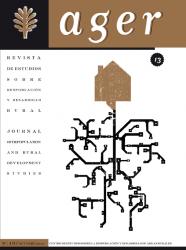Collective action and innovation in rural areas: an efficient dialogue. A case study of Greece
Resumen
According to some theories (Putnam 1993; Williams 1998) external risks incentivize small businesses to seek cooperation and synergies with one another in order to cope with those risks and improve their position. It is argued that social capital is a necessary condition for the organisation of collective action (Kazakos, 2006; Bianchi, 2001), and that existing social networks (that are closely linked to social capital) promote this evolution and facilitate these new synergies. However, in the case of Greek agriculture, even where the above conditions are present, no such evolution is observed.
In order to explain the hesitation of Greek farmers to co-operate and to investigate further farmers’ attitudes towards entrepreneurship through the creation of collective socio-professional associations, we carried out a research among 110 farmers, in the prefecture of Kilkis in the North of Greece through questionnaires and personal interviews. In parallel, we studied two forms of collective actions where producers of the prefecture are involved in order to answer the question of whether it is the need for innovation that leads producers to collective actions or the other way round. The central conclusion of the field research is that causality can operate in both directions if there is a broker who is strong enough to mobilize the producers.
Descargas
Publicado
Cómo citar
Número
Sección
Licencia
Aquellos autores/as que tengan publicaciones con esta revista, aceptan los términos siguientes:
- Los autores/as conservarán sus derechos de autor y garantizarán a la revista el derecho de primera publicación de su obra, el cuál estará simultáneamente sujeto a la Licencia de reconocimiento de Creative Commons que permite a terceros compartir la obra siempre que se indique su autor y su primera publicación esta revista.
- Los autores/as podrán adoptar otros acuerdos de licencia no exclusiva de distribución de la versión de la obra publicada (p. ej.: depositarla en un archivo telemático institucional o publicarla en un volumen monográfico) siempre que se indique la publicación inicial en esta revista.
- Se permite y recomienda a los autores/as difundir su obra a través de Internet (p. ej.: en archivos telemáticos institucionales o en su página web), lo cual puede producir intercambios interesantes y aumentar las citas de la obra publicada. (Véase El efecto del acceso abierto).

